Isa and Steph 👯♀️⏳💕
Beautiful, brilliant bestie mode 🔛 🔛 🔛
Starting a business with your best friend is a dream most of us have considered—usually after a couple glasses of wine and venting to said friend during a night in or night out. Very few of us, however, have been able to make that dream a reality. Stephanie and Isabella, on the other hand, have done just that.
I’ve known Steph for 9 years and Isa for 7. We’ve spent countless hours together—from office days that turned into all nighters to work trips where we shared beds and stayed up all night talking to weekend getaways with our other perfect Friend, Alyssa. What started out as coworkers quickly merged into lifelong friendships.
We all met at Everlane, a job with some of the most intelligent and hard working people I’ve ever encountered. Steph and Isa are no exception. In fact, at a brand that had such a strong point of view on taste, both Steph and Isa were the most tasteful, the most thoughtful, and yet the scrappiest, most determined, and best under pressure. You wouldn’t know it to look at them (they are always incredibly put together—Steph usually in some fabulous Issey Miyake and Isa in something sourced from her hometown of Mexico City or her trips around the world), but these are some of the hardest working bitches out there!!
Space of Time, the brand they launched together, is the perfect personification of the types of people they are—curated yet gracious, mindful yet full of play, beautiful yet balanced. I adore everything about Space of Time and everything about Steph and Isa. I’ve watched them grow it from a seedling of an idea to a living, breathing business. There have been highs and there have been lows but one thing has always stayed the same—Steph and Isa’s unique ability to make even the most pressured situations into diamond quality moments.
Isadora: Alright, first things first. Introduce yourselves.
Isabella: I'm Isabella. I struggle a lot with finding a word to describe myself. The looser one that comes to mind is just a creative. I was born and raised in Mexico and I've been living here in the States for a couple of years now. This actually gives me so much anxiety—trying to define in a blurb who I am, because I really don't even know.
Isadora: You actually did a really good job of defining who you were without tying it to work, which you're the first person who I've asked who's done that. Steph, your turn.
Steph: Hi. I’m Stephanie. I grew up in the New York area and moved out to LA around six years ago, and yeah—I guess I would put myself in a creative bucket too. Maybe annoyingly, I’ll use “multi-hyphenate” or designer type of creative—in really any capacity. I focus on people coming together through the creation of physical experiences in some way.
Isadora: Can you both describe a little bit of what each of your career paths have looked like thus far?
Isabella: Before college, I took a gap year in Vancouver and I went to film school on a whim. It was so daunting choosing a career path, and I just found it so freeing that I could choose something in college but not have to have it be my entire path. And I ended up loving film, specifically the production design element. I realized it was the storytelling aspect of it that I liked but not the making of it. Eventually, I switched majors and did fashion marketing. While studying and living in SF, I discovered Everlane which became my dream company to work for. I used to make all these projects about it and was just such a fan girl of the company but never really believed I could work there. Shockingly though, I ended up getting an internship that turned into a full-time role, and I was there for four years doing product marketing. It was so incredible to find a job so early on that valued brand marketing so much. It felt that all of our ideas mattered and they let us just run with them. Even though I was extremely insecure coming into it, it was my first job (!) and I really didn't know what I was doing at first. I learned to trust my instincts there. At Everlane, I nurtured my passion for storytelling, but also discovered a new love for hospitality and experiences. We did a lot of events and seeing how people floated through the space, and how they interacted with all the elements that we crafted for them was just so special. It was just an incredible space for me to find what I really like to do, which has a lot to do with experiences, spaces, design, people, and amazing meaningful conversations.
Isadora: Do you feel like you trust your ideas now?
Isabella: I do, when they first come to mind. That first ideation moment feels magical! But then my critical voice comes in, which has become louder when I started working for myself. It’s funny when you work for someone else, you need to get shit done and you need to make decisions fast. You don’t have a lot of time for self-doubt. You need to make it happen and in a way, they are holding you accountable to trust your ideas. But I think that now, working for myself it’s taken a bit to re-learn to trust my gut again. That said it's become so much more rewarding when I trust an idea so much that I actually bring it to life. With Space of Time, instead of fixating on what other brands are doing, to just keep coming back to ourselves, and to what actually fulfills Steph and I. Still need to on a daily basis tame my critical voice that makes me doubt my ideas, but I’m getting better and better just by returning to myself and what moves me.
Isadora: Well, not for nothing, but I’ve always loved all of your ideas.
Isadora: Steph, what’s your career path been like?
Steph: I was always a little art kid. My dad was an architect and art was my little escape. I went to art school and majored in industrial design. When I graduated, everyone was going on a product design path. For whatever reason, that was just not the path that I wanted. It felt too specific or small. I was more drawn to this bigger picture of how people can come together. This idea of events, the ephemerality, that was really interesting to me. I thought, oh, maybe events is the way that I want to go. I interned at this event design studio, which was fun, but there was so much waste involved. It was just putting on these super expensive child birthday parties or three hour galas that were tens to hundreds of thousands of dollars. I realized that I didn't want to just do events just for event's sake. They needed some sort of purpose or meaning behind it, but I didn't really know what that meant. I ended up working at this furniture company called Vitsoe, which is a design company that sells and manufactures the furniture designs of an industrial designer named Dieter Rams. It was so fun to learn design again within the realm of Dieter Rams’ work. He created the framework of principles around what is “good design”: it needs to have meaning and there needs to have purpose; a less being more type of thinking. That was a great experience. But, I was in my mid-twenties and I really wanted more hustle and energy, and it was peak direct-to-consumer time. Everlane was opening up a showroom in New York and they needed someone to help run the showroom and events so I joined as anextension of the brand marketing team. The role started with a focus on repeatable events then to concept shops and then into ultimately defining the strategy of our first physical flagship space. I focused on anything that created experiences around the product or community, always tying back to the brand.
Isadora: So how long were you both at Everlane?
Stephanie: Almost four.
Isabella: Same, almost four.
Isadora: So working at Everlane together was the birth of your relationship and friendship, but then both of you leave Everlane. Can you both also share with me what you were feeling when you left Everlane? Why were you leaving?
Stephanie: It was grind, grind, grind, push, push, push. A pro and a con of that experience is that we worked at the company as if we owned it. So it was like, we're going to work so tirelessly and use every single ounce of our being to concept the most “perfect” thing and execute well—the stakes were so high that it was like I had this whole brand behind “me”. It became part of my identity so much more than I realized. There was burnout by the end. And then there was total limbo because my now-husband left his job in New York and ended up getting a job in LA, so we made the decision to move in four days. And that kind of helped me let go of, or begin to fully separate from that former work experience. Once I moved to LA,I started freelancing and working on design projects on my own, but that was also born out of r limbo because I felt like I didn't know where else to go. I needed to work for myself because I didn't know how to work for anyone else after an experience like Everlane. But working on my own felt like I was in this little silo, churning out projects in my own head, and I was looking for someone or some people to work with to be able to continue generating projects, and really collaborate in a really beautiful way.
Isadora: And you and Isa were still in communication?
Stephanie: Yes, we were talking all the time. We had this ongoing text conversation of things that inspired us or things that we saw, etc. I was looking for any way possible to work with Isabella and she was still at Everlane at this time.
Isabella: I felt exactly how you [Stephanie] felt. I noticed that our identity was way too tied to it. Also, my partner worked there too, and all of my best friends. So as much as I loved it, it was time for me to re-learn who I was outside of it.
Isadora: So how did Space of Time happen after you both left?
Isabella: So Stephanie and I were texting all the time about what inspired us.
Stephanie: You were traveling and you sent me this voice note.
Isabella: Oh my God! Yes!! I was coming in hot and I had this amazing conversation with my dad and, he was like, Isa, you think too much. You are too scared of everything. You need to just jump and do the things that you want to”. He was really encouraging me to just think less. And when he said that, the first thing that came to mind was like, what if send a voice note to Steph and be like, why don't we actually start a business together? I was like, let's just jump into it. She sent a voice note back and we were so synced. It felt so magical. We were like fuck it. What do we have to lose?
Stephanie: I know. No, it was amazing. Like this fell into my lap or something. It was like, what? And so I think that kind of set off, okay, how do we make this real? Isabella was still in SF and I flew up for this mind mapping brainstorm of what we wanted this to be. And I remember being in an Uber and the driver is like, why are you going to San Francisco? And I was like, I'm going to start this business with my friend. He's like, wow, that’s amazing.
Isadora: What were your original ideas for Space of Time?
Stephanie: We were going to be a consultancy that was really bridging what Isabella and I felt like we did really well together which was working with brands. It was also just what we knew how to do: working with brands and helping to create experiences for them. Maybe they were events, maybe they were pop-up stores. It was very focused on physical experiences. So we figured all this stuff out. By the end of 2019, Isabella moves down to LA and then we start working on a project for a first client that had come in to create a physical activation in San Francisco. And so we were going like, let's do this project,and then we'll launch our business to everyone in the spring. So the project was supposed to launch in February. We were supposed to launch our business in March. But then the project fell through because of a “little” virus that ends up taking the world by storm. I remember thinking, who would've known that this virus was going to affect us this way? We were spooked, but we were also relieved. And we're like, well, anyway, perfect. This opens up a perfect time for us to launch the business instead of focusing on this event.
Isabella: So then we set up all our assets. We sent our email to friends and family,” hi, we're here. We're Space of Time. We're a consultancy that t can work with you to create these physical experiences. And then the world shut down two days later.
Isadora: So the world shuts down and how do you guys feel?
Stephanie: Isabella and I couldn't even see each other and we live seven minutes away from each other.
Isabella: It was a lot. Obviously, everyone was going through their own version of struggle. We were so ready and so eager to put this all out there and it felt frustrating, that we didn't even get a chance to show the world what we were going to do. It was a big bummer to be honest. All this to say, I actually think that it was a blessing in disguise because we were able to really narrow down what our North Star was, which was creating meaningful moments. That's kind of the most distilled version of Space of Time.
Stephanie: I mean I think of limbo so much as it relates to Space of Time. That time was high limbo, but even now, because this is such a personal kind of endeavor, there's by nature always some kind of limbo. But those were some highlimbo days, which is when it was scary and we couldn't see each other and all of this stuff. At least for me, I found turning to Space of Time and showing up on a video call with Isabella as an anchor in the midst of what felt like a lot of limbo.
Isabella: I love you!
Stephanie: I love you!!
Isadora: I LOVE BOTH OF YOU! Ok, so how did you turn this really paralyzing time into fuel for you to pivot Space of Time?
Stephanie: We started thinking about what we need and what people needed during this really difficult time. We can't bring physical experiences to people but what is this distillation of experience instead? And now that we're here, how do we bring that to people even when we're stuck in our homes? How do we distill experience to the point that it's literally just about the senses, something grounding: What does a taste you can enjoy or the playlist was all about sound? And those I think explorations really formed some of the early building blocks.
Isabella: I feel that during the early stages of the pandemic, it became so clear that the routines are the things that maked us happy. To take a break and carve out time to be present for a few minutes throughout the day. And obviously, the world was very much moving in that direction too. Everyone went back to these little things that ground you and gave you structure in small ways. But I feel that also we connected over that even more. Those are the pillars of what the brand is now.
Isadora: What is Space of Time now?
Stephanie: It's creating meaningful moments for people. Essentially Space of Time now exists as a brand, as a collection of products, and as a community. We're kind of shaping that all continuously too. By noticing our time and by using the beauty of things and the routines around us, that can actually help us savor the beauty of everyday life. And by being able to savor even the three minutes, the five minutes, an hour of your day, all of those times ladder up to your kind of greater experience of life as a whole. It’s very broad.
Isadora: It’s beautiful.
Isabella: I am reading this book and there was a little quote, it sounds very intense and you could flip it either positive or negative, but it said, “Every action you take is a vote for the type of person you wish to become.” I didn't have the clarity before of how the little decisions, like me taking time to flip a little sand timer to cue me to look out the window for a few minutes and relax, as cheesy as it sounds, have become so genuinely important to me. I'm surprised at how much I really do embody Space of Time. Space of Time and what we believe in has made my life significantly better. It's being reminded to be in the present, in small and trivial ways.
Stephanie: Yes, exactly. At this time, Space of Time shows up in a few different ways. We have our own line of products and objects. That could be anything from incense to printed material, things that really embody the Space of Time DNA in some way, or activates the senses in some way. And then we also have collaborations with artists and artisans. These are small-batch runs, limited editions, pieces that embody the personality or actual hand of whoever we're working with. We also curate other objects that we find from around the world and with a marketplace for tools or other accessories. But this other channel that we’re starting to grow is community. And we've heard Space of Time being referenced as a community. We do events, workshops, but it’s also just a way of thinking. In everything we do or make we want to make sure there is always a little Space of Time twist.
Isadora: I want to go back a little bit to what you guys were talking about before when you were at other companies and feeling a sense of ownership but then also realizing this isn’t my baby. Now that you own your own business, I’m wondering what validation means to you?
Isabella: I struggle with it so, so much. I feel so lucky that I get to do this. But it sucks when I sometimes get distracted by the outcome. It's all about expectations. That's a huge thing that I'm trying to manage because it just destroys so much. If I have expectations that a certain number are going to buy this and a different number does, then it affects me a lot. Space of Time has been a good teacher for me in the sense that whether I get the validation or not, I feel so proud of what we’re doing. Obviously, validation is nice and all, but there's a fine line between letting that fuel you versus controlling and shaping the outcome of how you feel about it through their eyes.
Stephanie: Validation can be hard as a small, independent business. You have to do a lot of it yourself, and maybe you aren't getting all of the reverberation of this validation externally, like what Isabella was saying. But something that I’ve found is that I can look back with some hindsight. Everything was intuitive, there were new ideas that we were willing to try. Orders are incredible and obviously we need them to sustain the business. Please order from Space of Time! But I think other moments of validation are just seeing people we have never met before interact with us. At our event on Sunday, we had people attend and we had no idea how they found us. I don't take that for granted. Maybe our community is still growing, but they're real humans that are showing up, that are in person, that are putting their hard-earned money behind things that we're selling. And that goes so far. I’m shifting the marker for validation.
Isadora: Since both of you have been in states of limbo and know what it’s like to feel paralysis or uninspired, what advice would you share to folks feeling that way right now?
Isabella: I’m saying all of this because I need to hear this advice myself but it’s crazy how comparison can be so destructive and just a huge distraction for where you actually want to be moving towards. So my advice would be, to go back inwards, to stop waiting energy on what others are doing, and to think about what represents you and your essence, what makes you feel in your flow, what makes you feel good? Trust that and don't try to look around because I feel that that's when you start to dim that light within you.
Stephanie: I can definitely empathize so much with that. I think as it relates to Space of Time, on some of the days that maybe I feel like a little lost with it, I turn back to Isabella and ask ourselves, what do we really want? The answer is already there. One thing is embracing the limbo and knowing that you're going out into a wave and it's okay. It's okay to have down days. If you think that you're going to reach a point where everything will be clear, I think that you're seeking something that is impossible.
Isabella: Life is being in limbo! o one has their shit together! I find such comfort in knowing that.
Stephanie: Limbo is omnipresent and it’s hard and it’s beautiful.


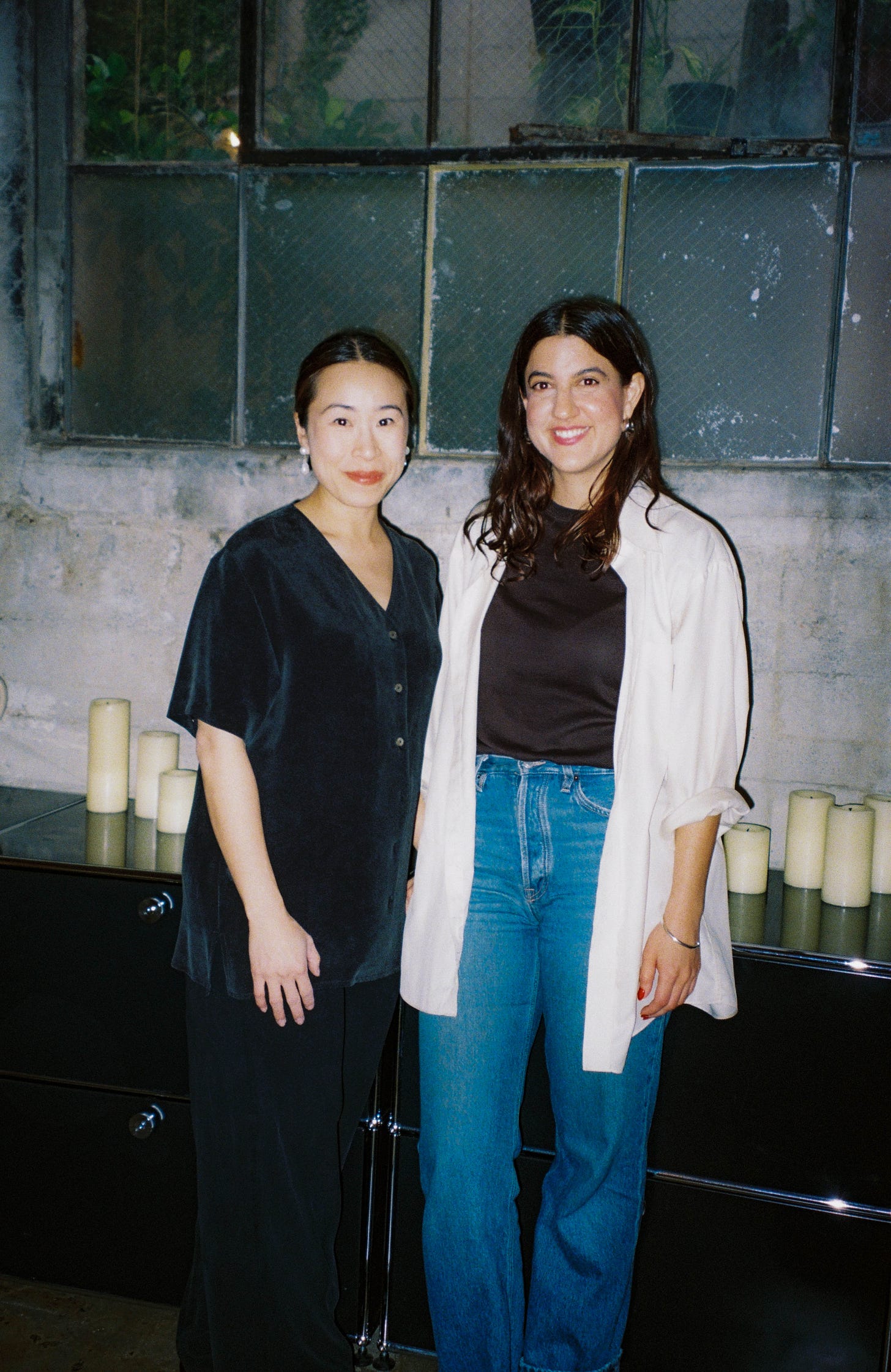
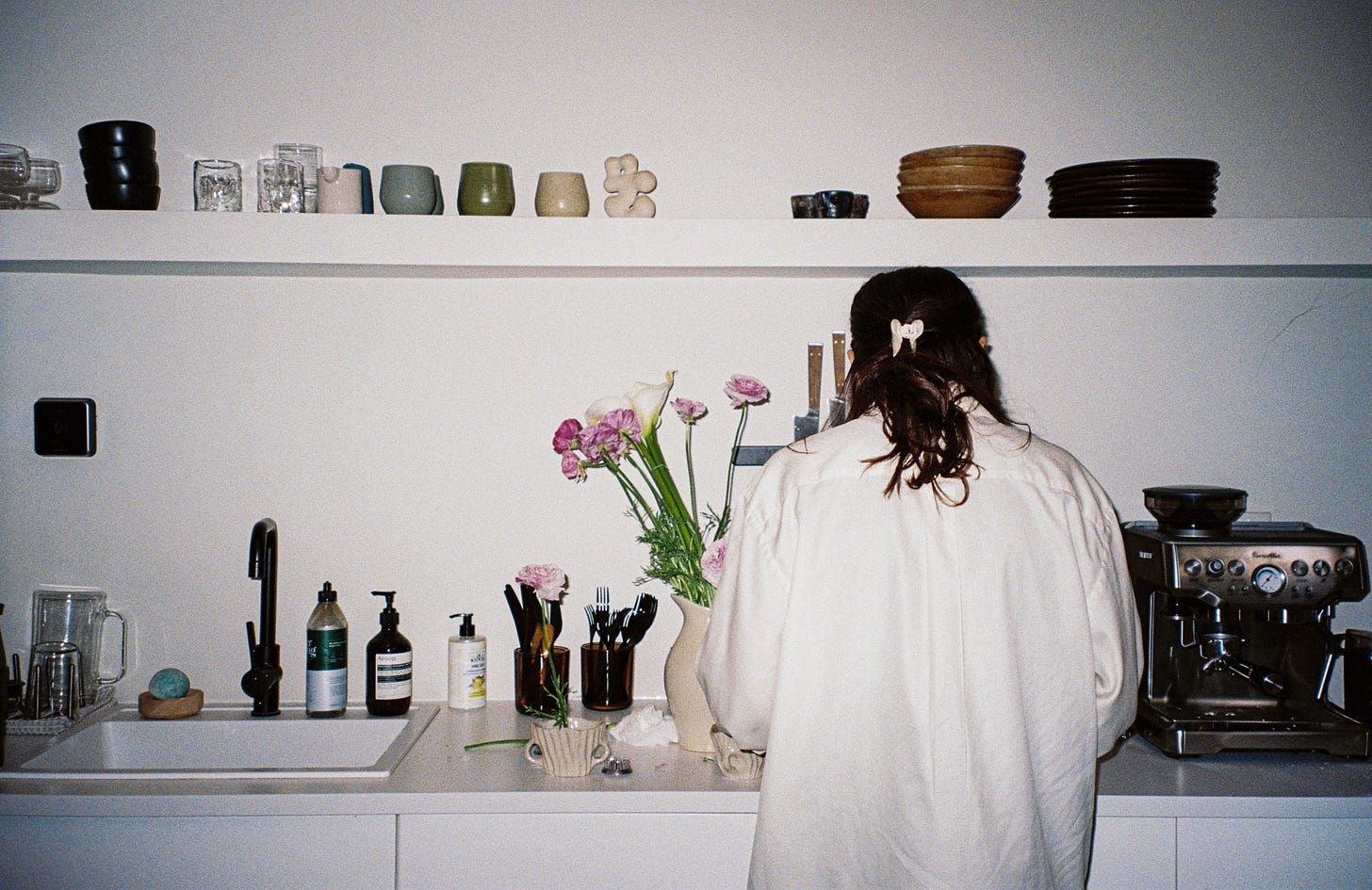
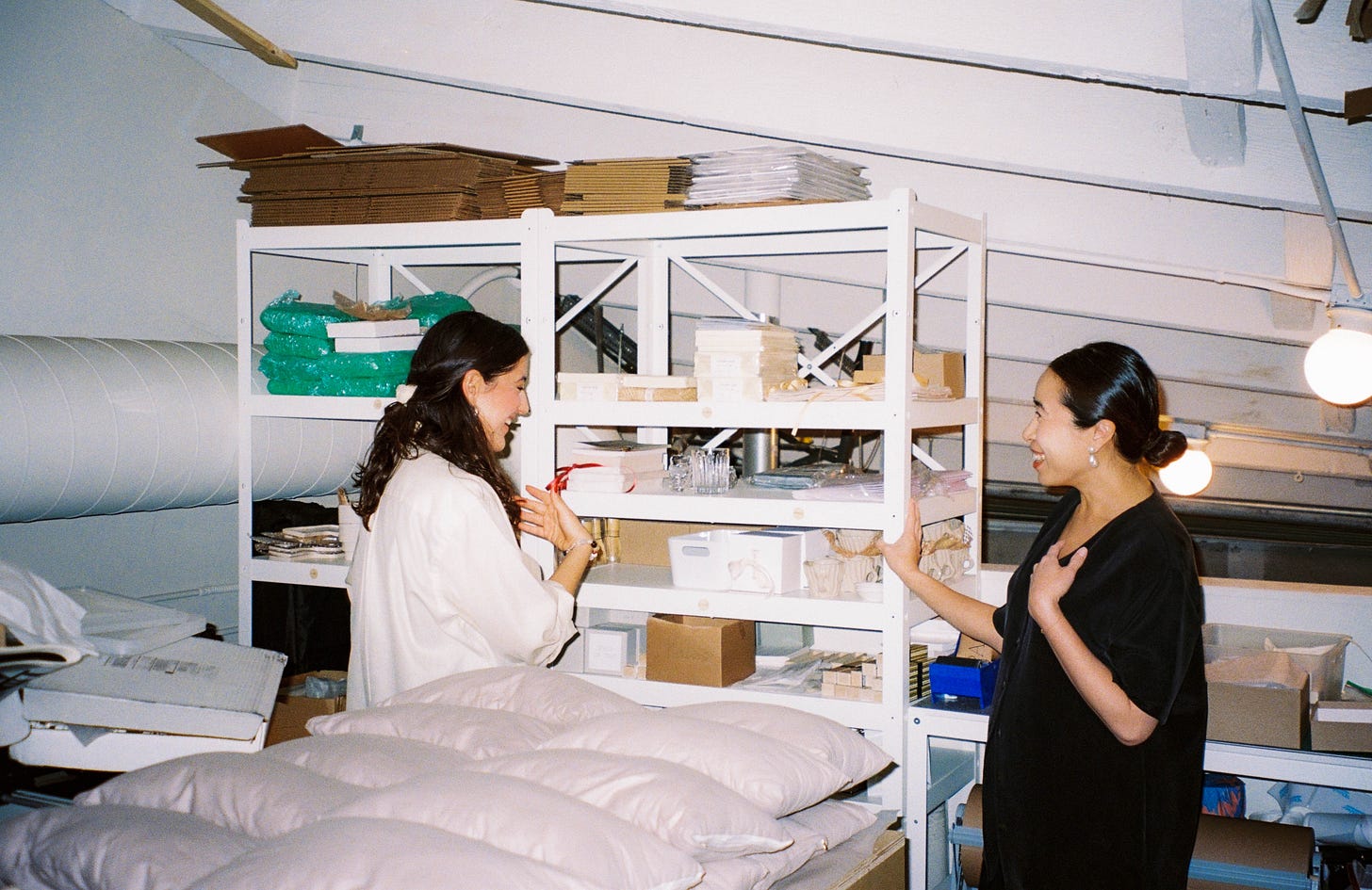
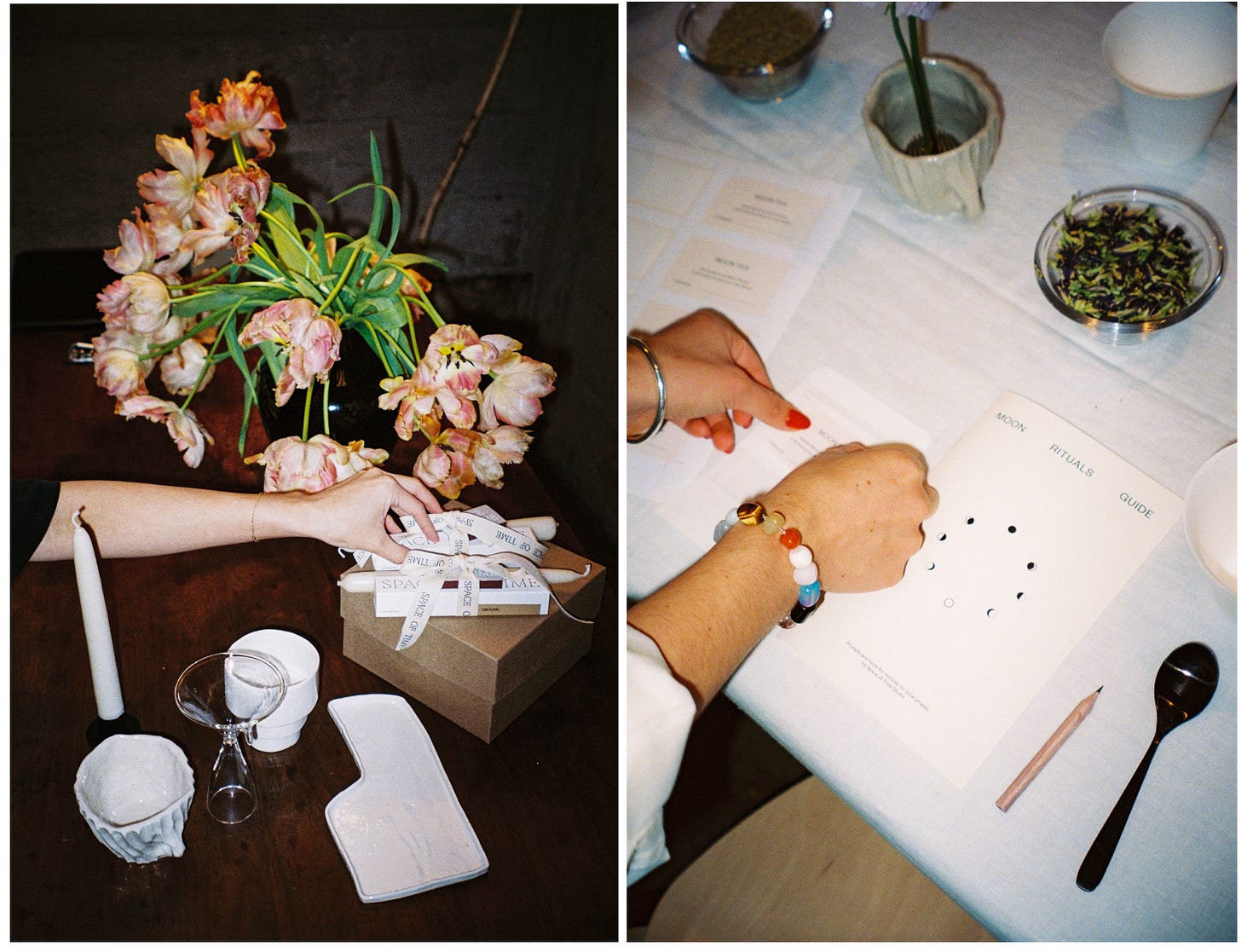
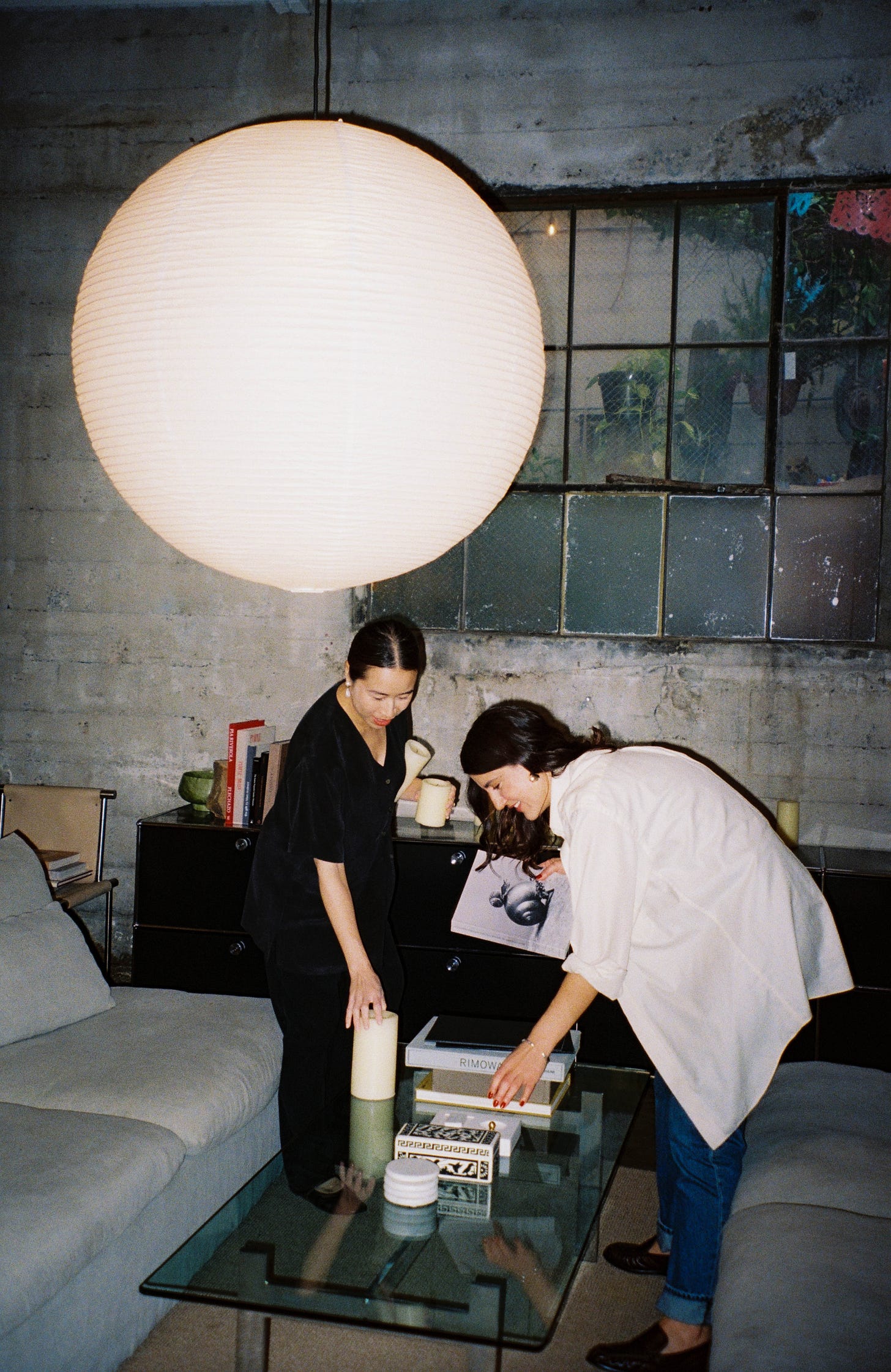
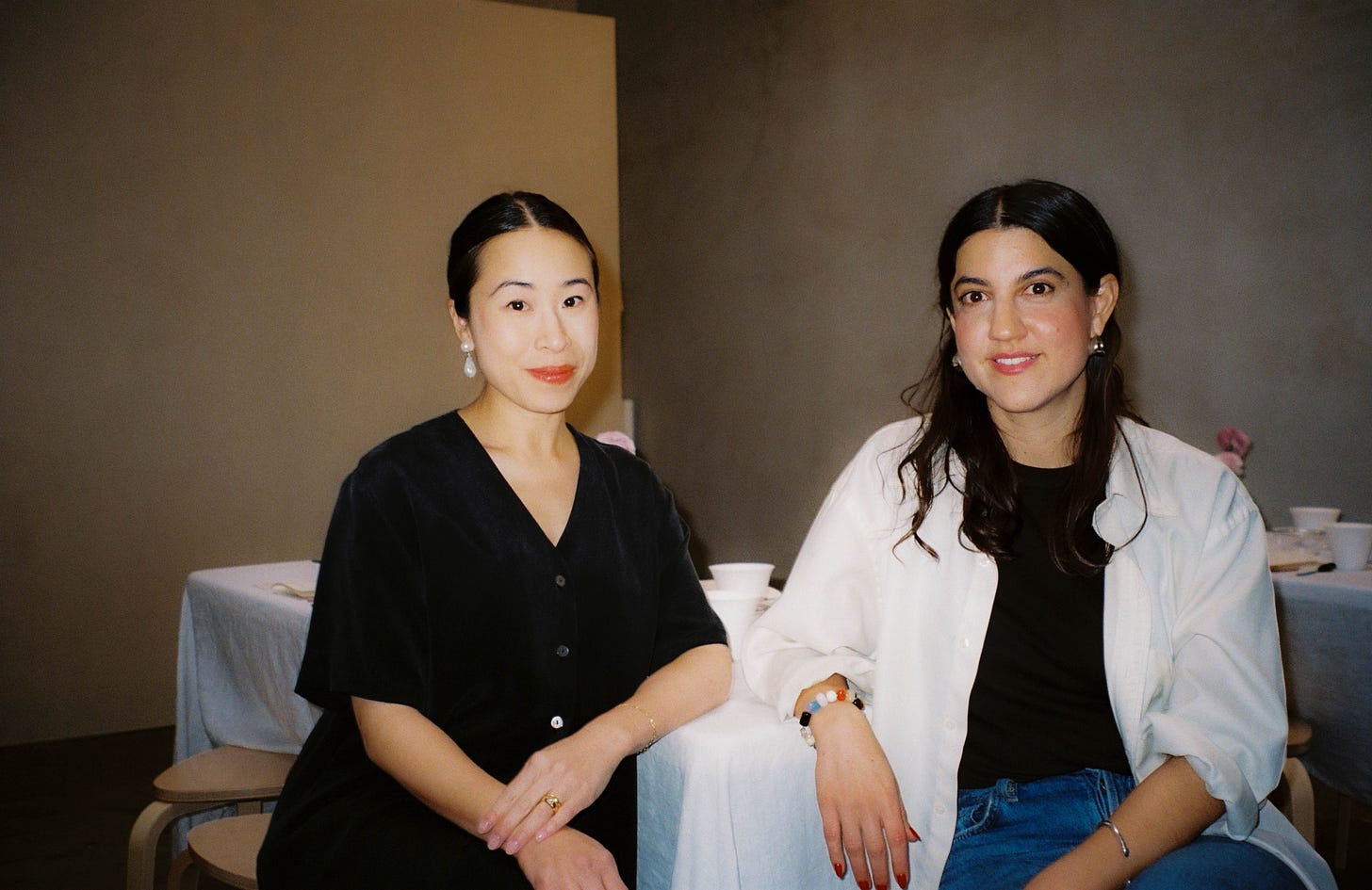
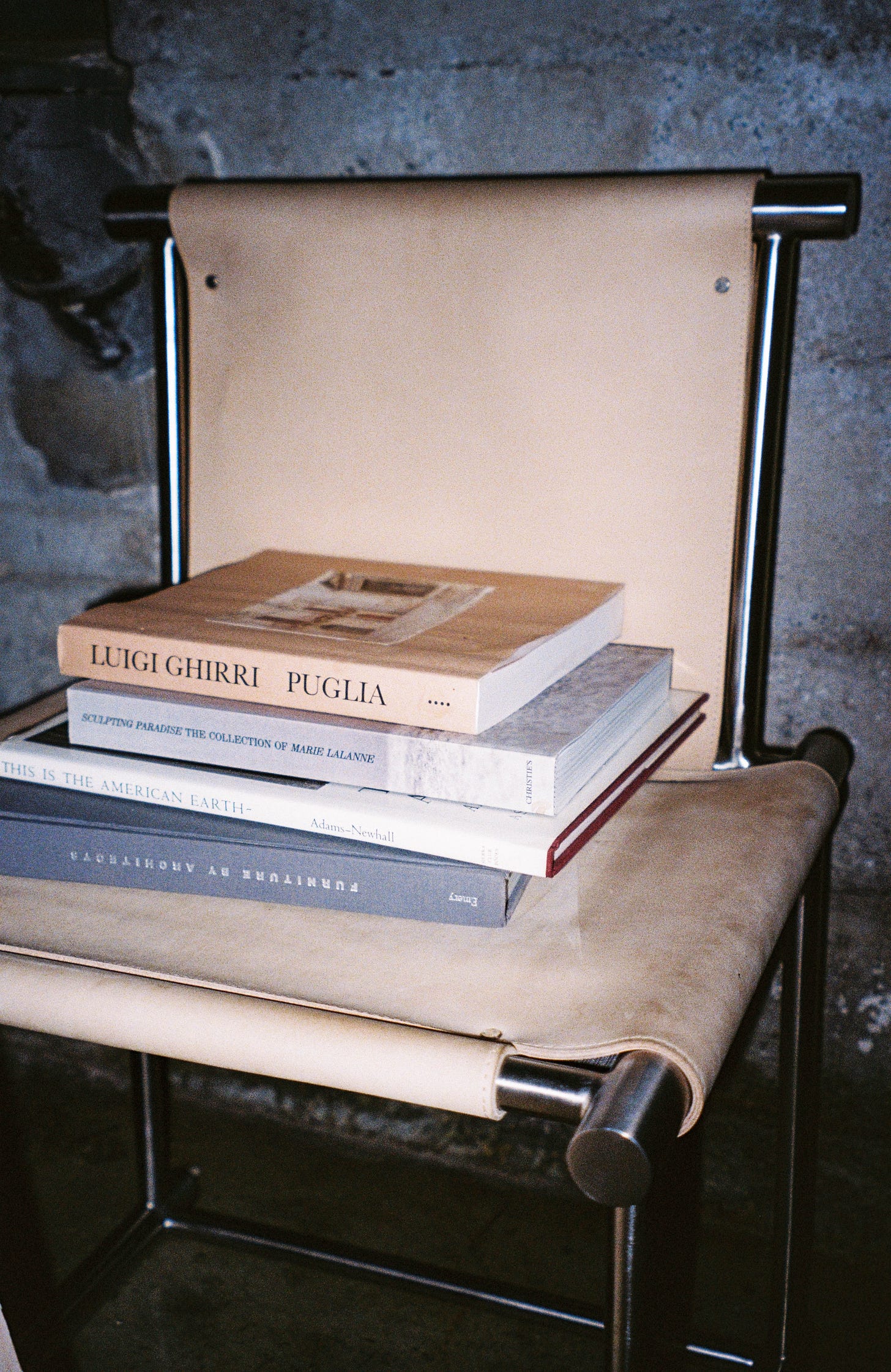
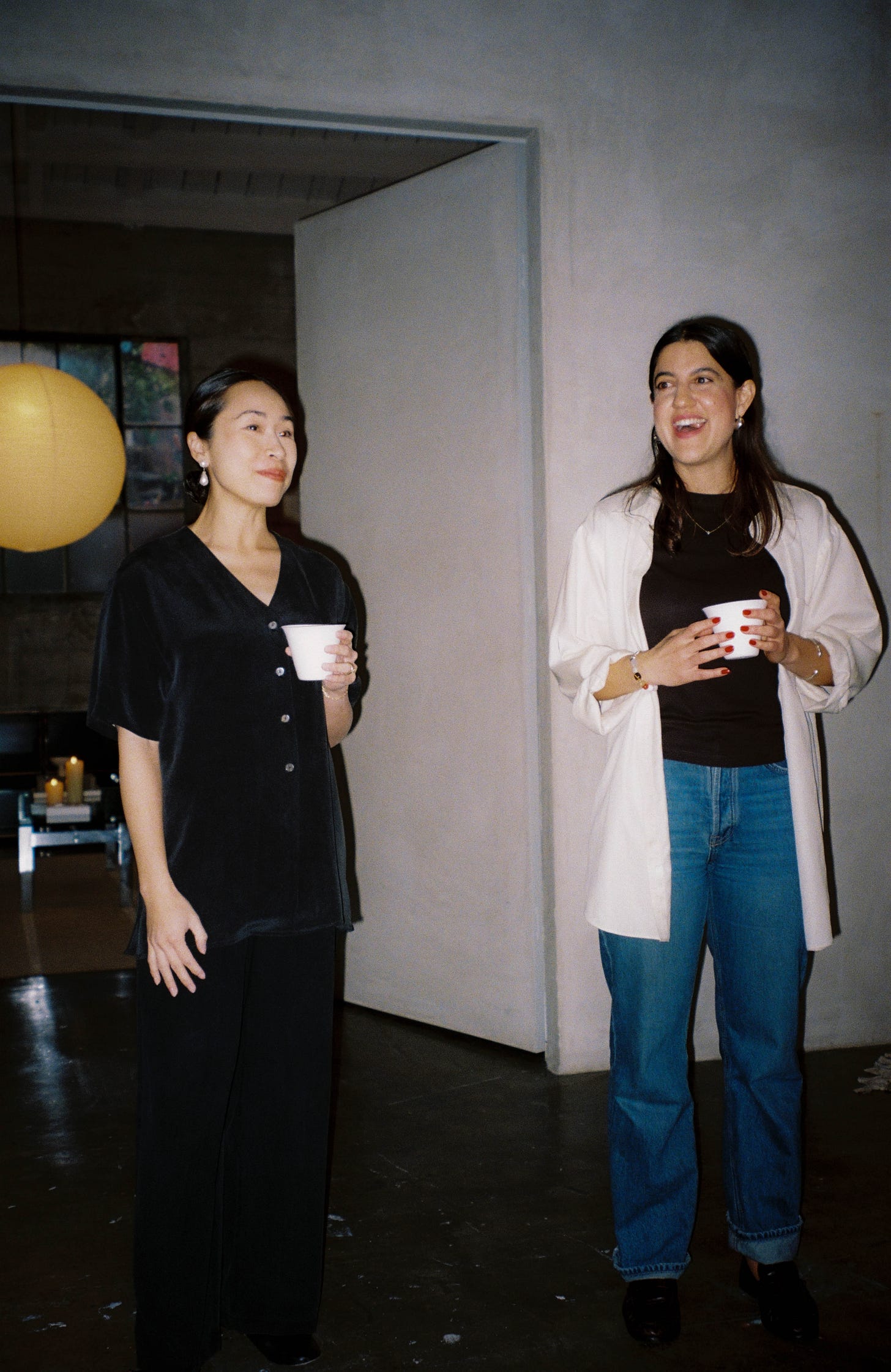
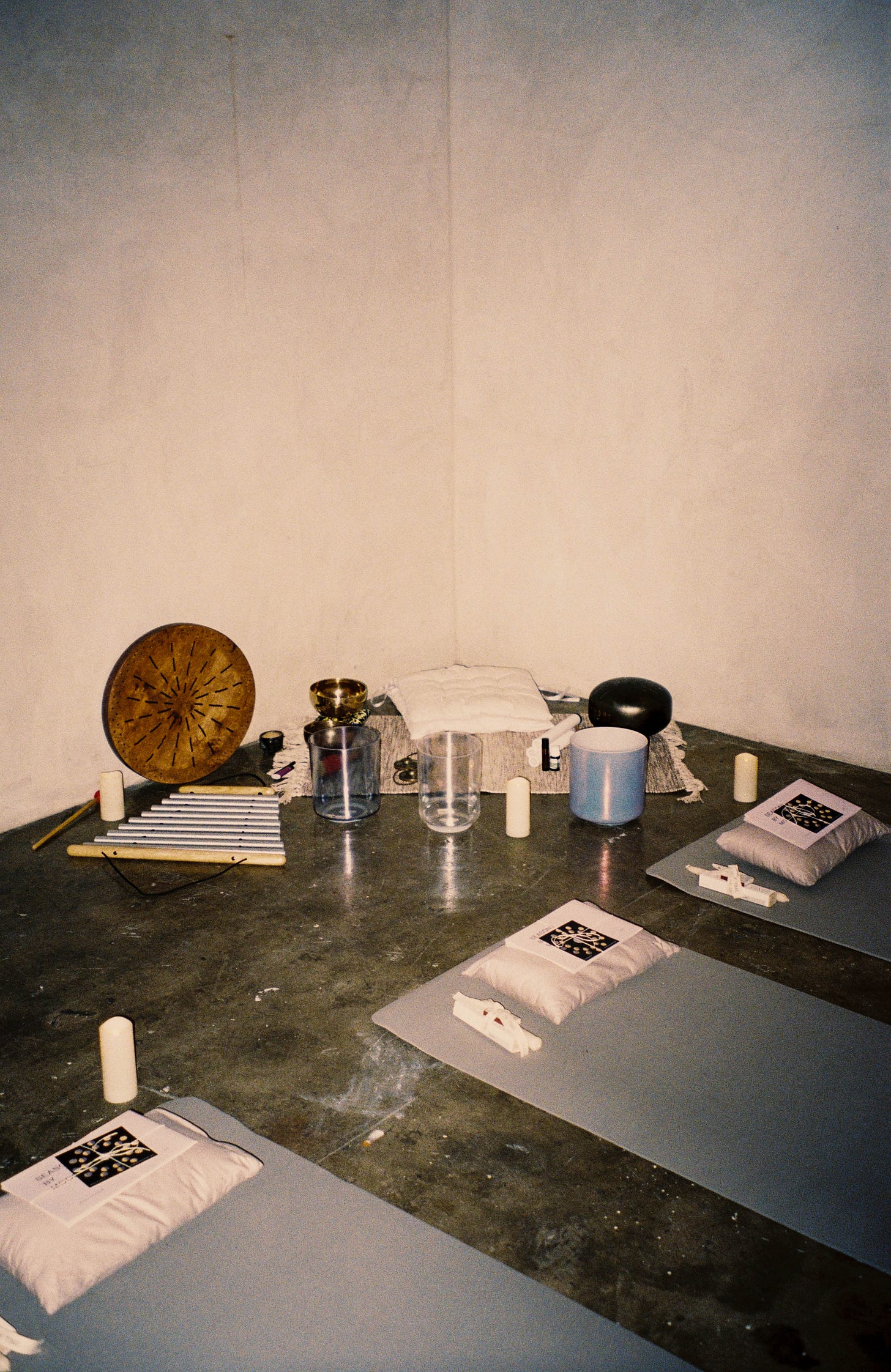
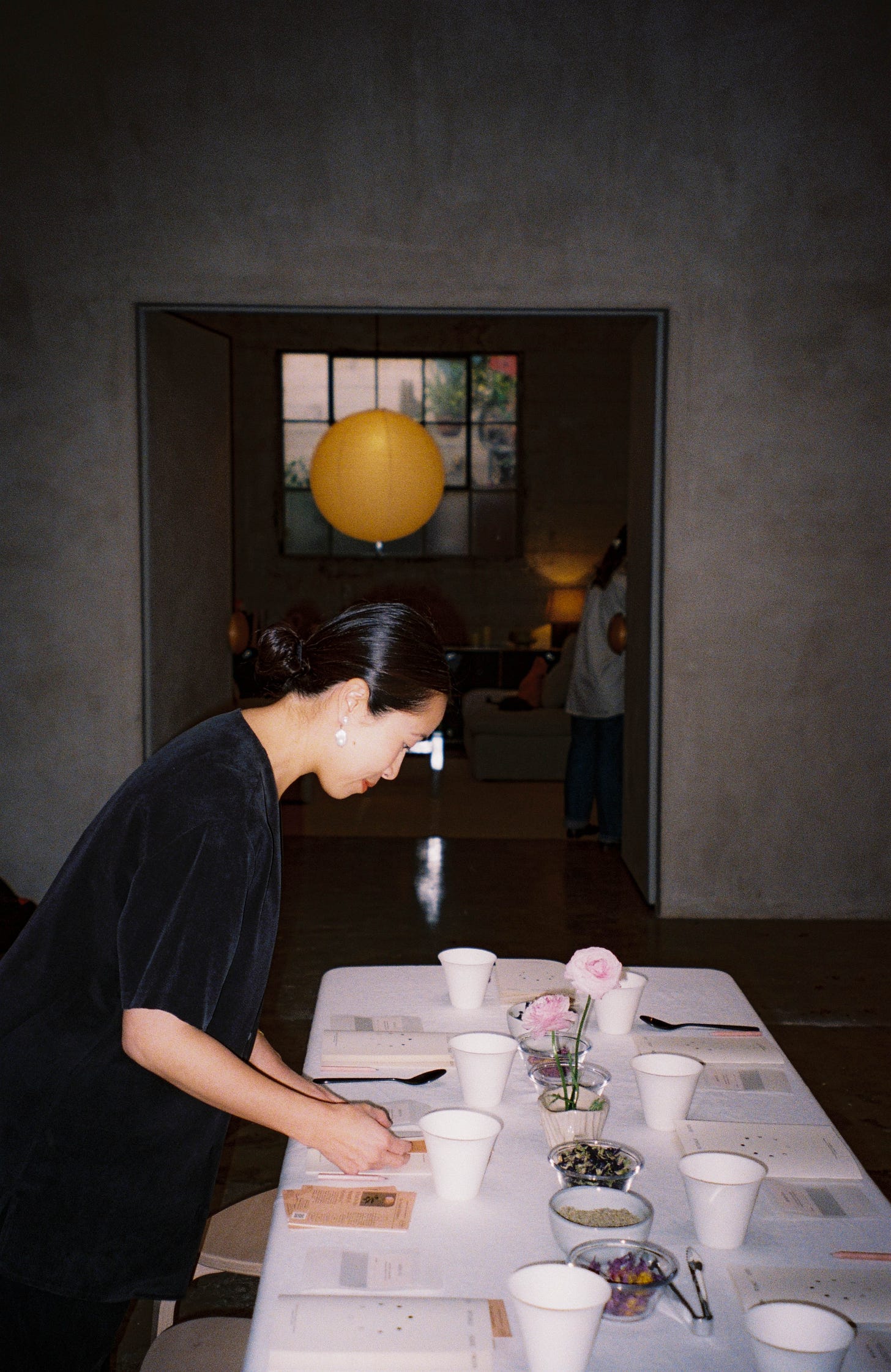
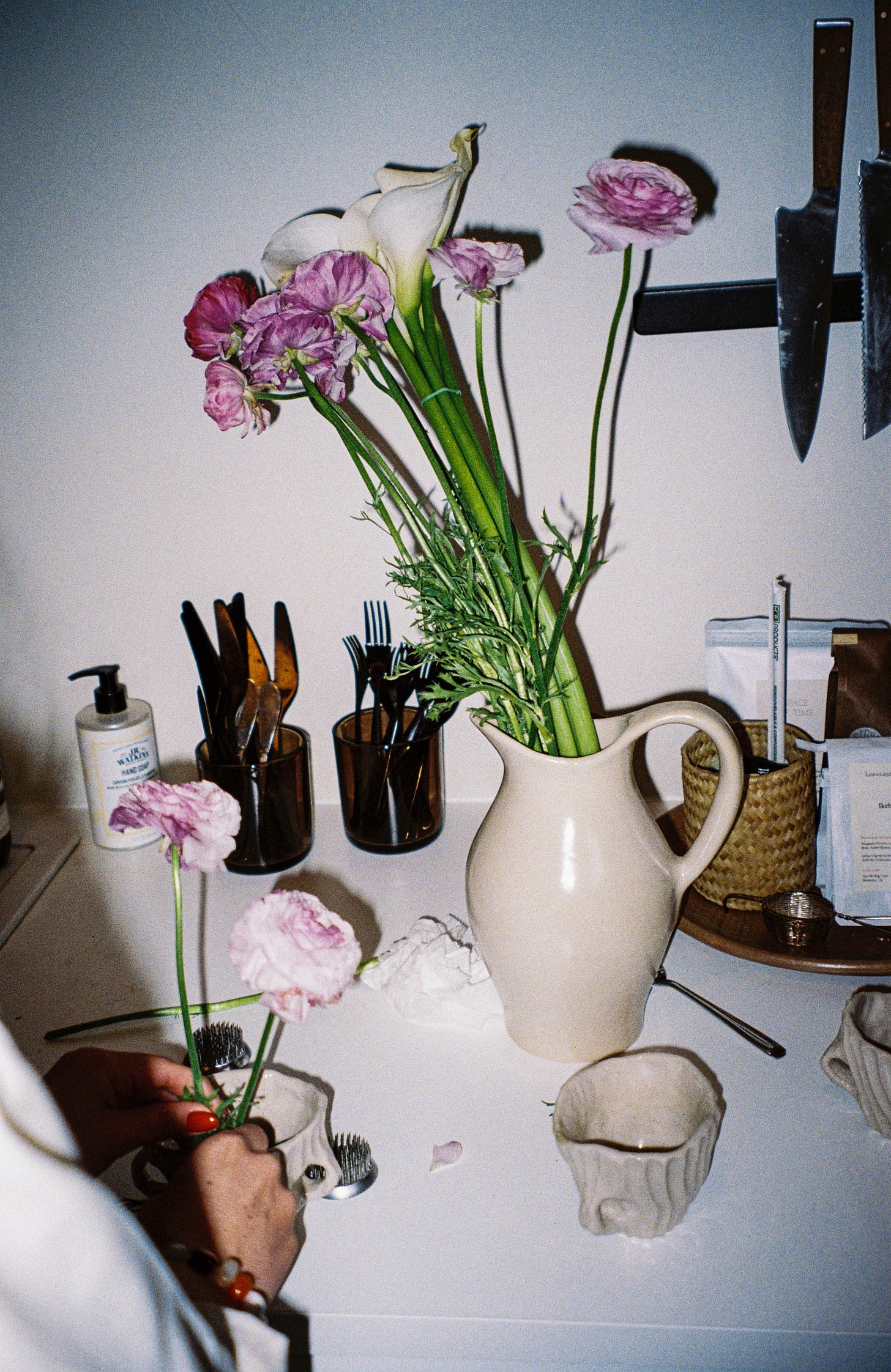
The best doing this together. Love you! ❤️❤️❤️❤️
hell ya girlies!!!!